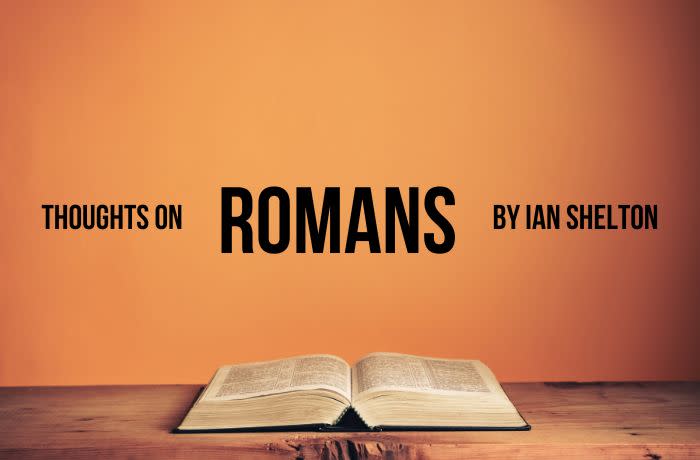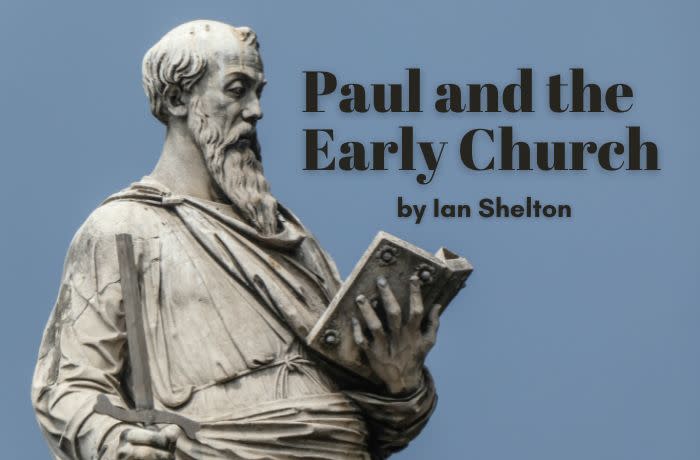Download our vision book
In light of our discussion on the “restoration of all things” as revealed by the prophets of the Old Testament, we can learn much from the restoration books of Ezra and Nehemiah. Following the seventy years of exile God called His people back to rebuild His house and to rebuild Jerusalem and the cities and villages of Israel.
It had been depressing to read again the history of Israel as recorded in Samuel, Kings and Chronicles. The people, though they had such great promises from God, continually backslid until there was no hope for them and they ended up in exile in Babylon. The simple reason for this catastrophe was the fact the people did not listen to the word of the Lord brought through the many prophets their compassionate loving God had sent them.
Ironically the one person who did listen to God’s word, brought through Jeremiah the prophet, was a pagan king, Cyrus. He sent his proclamation out to call people to return to Jerusalem to build the house of the Lord. (Ezra 1:1-4) Behind Cyrus, of course, was the sovereign God who will always work out His predetermined plan to bring heaven's blessings to this earth.
A small group responded and returned to rebuild the house and the city. Tragically most were too comfortable in pagan Persia and refused to go.
Is the church today hearing God’s voice to rebuild the house and the city?
Ezra and Nehemiah are two wonderful books of the restoration of God’s purposes in the face of many obstacles. The people, even though confronted with the enemy’s constant attempts to hinder the restoration, persisted with the encouragement of the prophets Haggai and Zechariah.
Unlike the last king Zedekiah who refused to humble himself (2 Chron, 36:12), the people under Ezra and Nehemiah did. Their humility produced a weeping over their sins and over the state of the city.
Let’s look at several scriptures that point out the importance of a humble, repentant people.
“Now while Ezra was praying and making confession, weeping and prostrating himself before the house of God, a very large assembly, men, women and children, gathered to him from Israel; for the people wept bitterly.” (Ezra 10:1 NASB)
Nehimiah knew that the sins of the people were the obstacle to the rebuilding process. Note that weeping and confession of sins are pivotal to the success that Ezra and Nehemiah finally achieved.
“……I sat down and wept and mourned for days;” (Neh 1:4b)
“……confessing the sins of the sons of Israel which we have sinned against You; I and my father’s house have sinned.” (Neh 1:6b NASB)
“For all the people were weeping when they heard the words of the law.“ (Neh 8:9c NASB)
“….they confessed and worshipped the LORD their God.” (Neh 8:3c)
“….and they cried with a loud voice to the LORD their God.” (Neh 8:4b)
Jesus wept over His city because the people didn’t. (Matt. 23:37)
Nehemiah wept over the city and immediately took personal responsibility for the obstacles to the rebuilding of the city, which were the sins of the people of God, including his own sins. The rebuilding of the house of the Lord continued after the confession of sin.
This attitude marks the beginning of any genuine revival and rebuilding of God's purposes in a city. I have heard my late Papua New Guinean colleague, Ps. Walo Ani, say that community transformation is birthed from a revival of repentance!
It is obvious from scripture that nations flourish when cities flourish, and cities flourish when the house of God flourishes. It is also obvious that the sin of God’s people is the “blocker” to city transformation. Please note it is not the enemy, or the sins of the world that are the primary obstacles.
When will the church take responsibility under God for the “welfare” of cities and nations?
God is raising up city leaders who know what it is to weep over their sins, individually and corporately, confessing them to God and receiving His forgiveness and cleansing. This will include the sin of division and competition in the Body of Christ. These intercessory prayer meetings are powerful times where lives are impacted and things begin to change. From these encounters leaders are never quite the same again.
From this place of humility the same leaders will begin to weep over the pain and brokenness of the city. In every city, behind nearly every door there is so much pain. From a corporate place of humility city leaders will identify with this pain and cry to God on behalf of the suffering.
From this seedbed of humility (Is. 66:2) God begins to speak and to work afresh in the city. Before long He is raising up people and resources with inspired strategies to meet needs. The road to transforming the city takes shape and advances.
The building of the house of God develops the unity of the Body which in turn inspires Christians in the vision of rebuilding the city. This community building continues into the marketplace with engagement in every sphere and area of city life, from the political, to commerce, to education, and so on. Capable leaders will emerge and with them clear strategies for city engagement at every level.
The above comments come from experiences in my own city, and from the joy I have had, and the knowledge I have gained from being able to dialogue with city leaders from around the world over many years.
There is so much to learn from Ezra and Nehemiah and the support they received from the prophets, Haggai and Zechariah. Remember the work of restoration would never have been completed without the powerful admonition and encouragement of these restoration prophets.
The enemy had been successful in stopping the rebuilding of the house of the Lord and that is where the prophets stepped in.
“Then work on the house of God in Jerusalem ceased, and it was stopped until the second year of the reign of Darius king of Persia. When the prophets, Haggai the prophet and Zechariah the son of Iddo, prophesied to the Jews who were in Judah and Jerusalem in the name of the God of Israel, who was over them, then Zerubbabel the son of Shealtiel and Jeshua the son of Jozadak arose and began to rebuild the house of God which is in Jerusalem; and the prophets of God were with them supporting them.” (Ezra 4:24-5:2. NASB)
When the rebuilding was complete the prophets were given the credit.
“And the elders of the Jews were successful in building through the prophesying of Haggai the prophet and Zechariah the son of Iddo.” (Ezra 6:14a. NASB)
Let’s look briefly at some of the things they prophesied to the struggling builders.
Haggai began with a strong word of admonition to a people who had only been interested in building for themselves and not first of all for God.
“Is it time for you yourselves to dwell in your panelled houses while this house lies desolate?” (Haggai 1:4 NASB)
Then came a word of encouragement which stirred the builders to return to work. They had been working on their own individual projects but now they came and worked together on God’s project.
“Then Haggai, the messenger of the LORD, spoke by the commission of the LORD to the people saying, “ ‘I am with you,’ declares the LORD.” So the LORD stirred up the spirit of Zerubbabel the son of Shealtiel, governor of Judah, and the spirit of Joshua the son of Jehozadak, the high priest, and the spirit of all the remnant of the people; and they came and worked on the house of the LORD of hosts, their God,” (Haggai 1:13-14. NASB)
Haggai 1:12 tells us that the people obeyed God and the words of the prophet for they knew he was sent by God thus revealing their reverence for God.
Where are such prophets today who call God’s people to rebuild temple and city? If they were active today would the church listen and obey?
But Haggai was not finished as he brought encouragement to take courage and not fear as, “My Spirit is abiding in your midst;” (2:5b). The implications are that the builders were fearful and lacking courage to continue the work in face of the enemy's worst efforts.
Haggai then prophesies a great shaking that will cause resources to pour into the work of the Lord. The overriding vision though is of a coming house that will have much more glory than the one they were currently building and which would finally usher in shalom which is always God’s goal. (2:6-9) The church is now, or meant to be, God’s temple filled with His “greater” glory.
Haggai concludes his series of “words from God” with a second “I am going to shake the heavens and the earth” statement. (2:21) However this time the shaking is not about a house of greater glory but a political statement about God destroying the power of kingdoms and nations and their armies.
We can only imagine what these handful of struggling ex-exiles attempting to rebuild their place of worship and their burnt out city would think of these prophecies. They were weak nobodies surrounded by the greatest empires of their day.
Then to astound these struggling people even further Haggai tells them that God has chosen them as His “signet ring” (2:23); His people of authority who would rebuild cities that shape the very destiny of nations.
As we consider the “restoration of all things” our minds go to Hebrews where these two verses about God shaking everything are quoted in the context of the church and the kingdom. (Heb. 12:22-29) We are reminded that only the Kingdom of God is unshakable. The church is very shakable if it is not firmly grounded in the Kingdom.
E. Stanley Jones’s 1972 book The Unshakable Kingdom and the Unchanging Person inspired me as a young pastor. Similarly inspiring is Ern Baxter’s (1914-1993) amazing 1977 sermon, Thy Kingdom Come, preached to a stadium full of leaders in Kansas City. (Still available on line.)
Jesus came with the message of the good news of the Kingdom, not the good news of the church.
Haggai and his fellow prophet Zechariah were not only speaking to the returned exiles encouraging them in their rebuilding project but they were also speaking to those of us on this side of the cross in whose hands the words of restoration rest.
Let’s now look at Zechariah and his influence not only on the post exile world but also to us today. This is a longer book and deserves careful attention. (Barry Webb’s BST Commentary on Zechariah is a good study).
I will only mention a few highlights. Two quotes from Webb sets the scene.
“So Jerusalem was nothing without the temple, and the temple was nothing without God’s presence. It was God’s presence that made both the temple and the city glorious. With the Lord present in his temple, Jerusalem was the city of God. It was the centre of his kingdom on earth, and the place where that kingship would finally be manifested.” (Page 34)
And again.
“The dream of a new Jerusalem was God’s dream, and Zechariah, his prophet, challenged his followers to make it theirs as well. (Page 35)
Zechariah has two early proclamations after his call to Israel to repent and return to God. (Zech. 1:3)
Firstly God says that He will return to Jerusalem with compassion and build His house in it. (1:14-16.) May God do the same in our cities!
The second proclamation finds God saying, “My cities will again overflow with prosperity, and the Lord will again comfort Zion and again choose Jerusalem.” (1:17)
The Authorised Version says this about 1:17b;
“My cities through prosperity shall yet be spread abroad;”
May this apply to our cities!
Zechariah reminds the people that in God’s cities justice is foundational.
“Thus has the LORD of hosts said, ‘Dispense true justice and practice kindness and compassion each to his brother; and do not oppress the widow or the orphan, the stranger or the poor; and do not devise evil in your hearts against one another.’ “ (Zech. 7:9-10 NASB)
What a great vision for any city!
Church leaders who don’t make justice a top priority in their gospel strategy for the city are refusing to listen to God, becoming stubborn and hard hearted. (See 7:11-14)
Zechariah then gives an amazing word from God as to how the city should be when God is its centre. (8:1-23) Shalom abounds in this flourishing city. It reminds us of Isaiah 65:17ff and Revelation 21-22 and the vision of the new Jerusalem. This is God’s plan for every city that turns to Him.
And of course we cannot leave Zechariah without mentioning the great prophetic scripture of Christ riding into Jerusalem on a donkey. (Zech. 9:9-10) This set the scene for how the church should approach its city, with great humility in line with our King. The result is shalom and peace from the city to the nations.
Then finally Zechariah makes clear to the rebuilders the very reason for the temple is here is where the King rules from, not only over the city, but also over the earth.
“Yes it is He who will build the temple of the Lord, and He who will bear the honour and sit and rule on the throne.” (Zech 6:13a NASB)
“And the Lord will be king over all the earth; in that day the Lord will be the only one, and His name the only one.” (Zech 14:9 NASB)
My prophetic sense is that, just as the Spirit came to the church in a fresh visitation in what we call the Charismatic Movement of fifty years ago, now the King is coming in another fresh visitation, not to our churches, but to our cities, to reclaim through the gospel what is rightfully His. The invitation is to join Him in this great new endeavour.
The King is coming afresh to the cities of the earth!
By Ian Shelton Coordinator of Movement Australia



